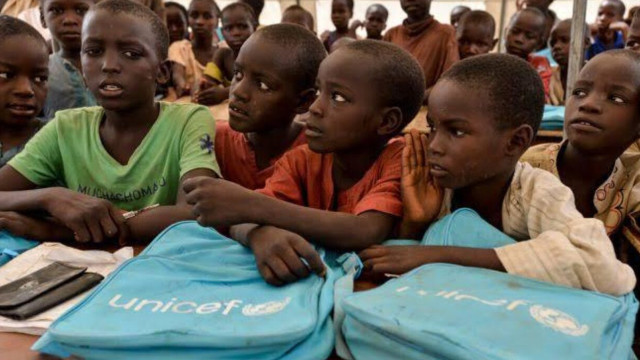The United Nations Children’s Fund (UNICEF) has expressed concerns over the state of youngsters’ welfare in the North-East, noting that 72 per cent of pupils, who complete primary school in Borno, Adamawa and Yobe States, cannot read basic text.
Chief of UNICEF Maiduguri Field Office, Joseph Senesie, who disclosed this to reporters, described the situation as alarming, warning that millions of children across the region are still denied access to their basic rights.
He noted that an estimated two million children remain out-of-school across the region, while about 12 local government areas in Borno and Yobe continue to report high numbers of unvaccinated children, leaving them vulnerable to preventable diseases.
Senesie reminded of the grim realities facing children in Nigeria’s conflict-affected region, describing them as the country’s “most neglected, yet most invaluable resource.”
According to him, only three in 10 children in Borno, Yobe and Adamawa States have had their births officially registered, depriving them of legal identity and excluding them from essential services, such as healthcare, education, and social protection.
Despite the challenges, Senesie acknowledged the progress made by state governments. He praised the implementation of the Child Protection Law, open defecation-free declarations in five local government areas, and Borno State’s N100 million contribution to the child nutrition fund. He also commended the inauguration of 27 local government committees on food and nutrition as significant steps to move the region forward.
“These are commendable milestones that reflect leadership and political will,” he said. Senesie urged government officials, civil society organisations, and development partners to intensify efforts in closing existing gaps in nutrition, immunisation, child protection, sanitation, and education.
He reaffirmed UNICEF’s commitment to these goals, disclosing that in 2024 alone, nearly 600,000 children in the northeast were treated for severe acute malnutrition, 2.48 million under-five children received vitamin A supplements, while 1.2 million were immunised with the pentavalent vaccine.
He reassured that UNICEF will remain a voice for every child, working closely with the government and partners to ensure that children in the region not only survive, but thrive and realise their full potential.




















